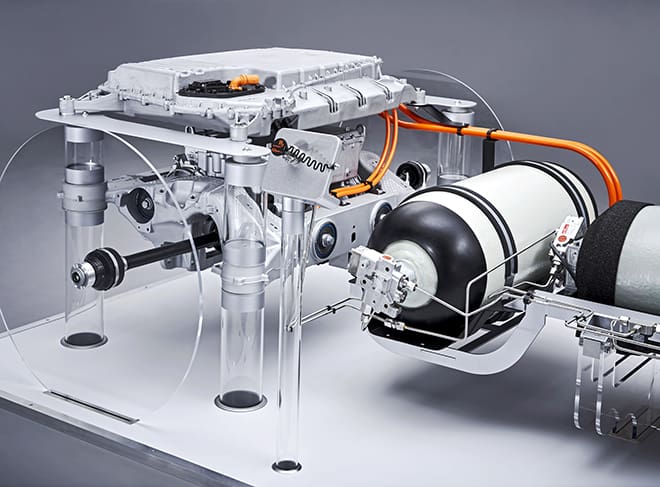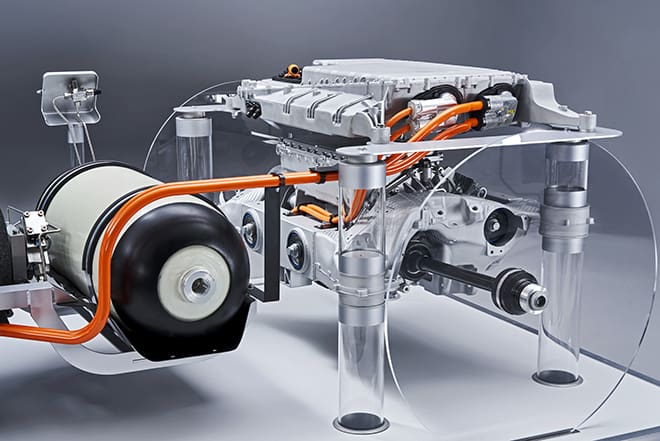
Different automakers have different visions of the low-emissions future, to say the least. Just a few days after the Volkswagen Group released an article explaining why it has abandoned hydrogen fuel cells in favor of battery-electric powertrains, BMW has “reaffirmed its ongoing commitment to hydrogen fuel cell powertrain system technology.”
Unlike VW, BMW is leaving all its powertrain options open. The company’s Power of Choice strategy envisions continuing to offer legacy ICE powertrains alongside pure electric, plug-in hybrid and fuel cell alternatives.
“We are convinced that various alternative powertrain systems will exist alongside one another in future, as there is no single solution that addresses the full spectrum of customers’ mobility requirements worldwide,” says Board Member Klaus Fröhlich. “The hydrogen fuel cell technology could quite feasibly become the fourth pillar of our powertrain portfolio in the long term. The upper-end models in our extremely popular X family would make particularly suitable candidates here.”

BMW has been working with Toyota on fuel cell technology since 2013. Unlike Toyota, BMW has no plans to offers a production fuel cell vehicle any time soon. “In our view, hydrogen as energy carrier must first be produced in sufficient quantities at a competitive price using green electricity,” says Herr Fröhlich. “Hydrogen will then be used primarily in applications that cannot be directly electrified, such as long-distance heavy-duty transport.”
On the other hand, BMW has plans to expand its range of battery-electric vehicles—some 25 electrified models are slated for launch by 2023, including at least 12 pure EVs.
BMW has now released some technical details of its BMW i Hydrogen NEXT powertrain, which first appeared in a concept vehicle at last September’s Frankfurt Motor Show. The system uses fuel cells developed in cooperation with Toyota, alongside a fuel cell stack and overall system developed by BMW.

“The fuel cell system generates up to 125 kW (170 hp) of electric energy from the chemical reaction between hydrogen and oxygen from the ambient air,” explains Jürgen Guldner, VP of Hydrogen Fuel Cell Technology and Vehicle Projects.
BMW’s fifth-generation eDrive unit, which is to debut in the upcoming iX3, is also integrated into the Hydrogen NEXT powertrain. A “peak power battery” positioned above the electric motor “injects an extra dose of dynamics when overtaking or accelerating” (and outruns the current Toyota Mirai, which has peak power of only 114 kW [152 hp]).
An electric converter located underneath the fuel cell adapts the voltage level to that of the electric powertrain and the peak power battery, which is also fed by regenerative braking. The vehicle accommodates a pair of 700 bar tanks that can together hold six kg of hydrogen. “This guarantees a long range regardless of the weather conditions,” says Guldner, “and refuelling only takes three to four minutes.”
BMW plans to present a pilot version of its hydrogen powertrain in a small series based on the current X5 in 2022. A production fuel cell vehicle is to be expected “at the earliest in the second half of this decade, depending on global market conditions and requirements.”
Sources: BMW, Green Car Reports
source https://chargedevs.com/newswire/bmw-reveals-details-of-hydrogen-fuel-cell-powertrain-system/
No comments:
Post a Comment